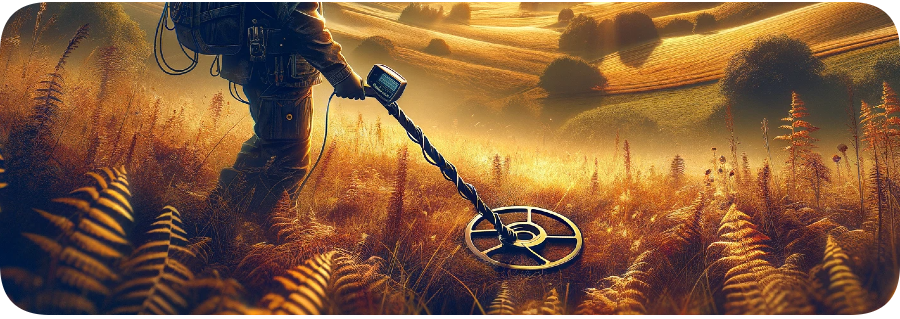
Metal detecting is an exciting hobby that can lead you on an adventure to uncover hidden treasures. Whether you're searching for historical artifacts, lost jewelry, or buried coins, metal detecting can be a fun and rewarding experience. However, if you're new to metal detecting, it can be overwhelming to know where to start. In this post, we'll cover the top 10 metal detecting tips for beginners to help you get started on your journey.
Before you venture out with your metal detector, it's crucial to research the location you plan to explore. Different areas will have different types of metals and artifacts, and some may even have restrictions on metal detecting. By researching your location beforehand, you'll have a better idea of what to expect and what to look for.
One of the most crucial aspects of metal detecting is learning how to use your detector properly. Take the time to read the manual and familiarize yourself with the different settings and features of your detector. Practice in your backyard or a nearby park to get a feel for how your detector works and how to distinguish between different types of signals.
Using headphones while metal detecting can significantly improve your chances of finding valuable items. Headphones will allow you to hear faint signals that you might not otherwise hear, and they'll also help you to block out ambient noise, making it easier to focus on the signals you're receiving.
When you're out metal detecting, it's essential to dig responsibly. Always ask for permission before detecting on private property, and be sure to fill in any holes you dig. If you're detecting in a public area, be mindful of other people and avoid digging in areas where it could be hazardous, such as near a playground or sports field.
As a beginner, it's easy to become overwhelmed by the vast amount of ground you can cover with a metal detector. Instead of trying to cover too much ground, start small. Focus on small areas and take your time. You'll be more likely to find valuable items if you thoroughly search a small area rather than quickly scanning a large area.
Joining a metal detecting club can be a great way to meet other enthusiasts and learn from more experienced detectorists. Clubs often hold events and outings that can help you to hone your skills and discover new locations to explore.
When you're out metal detecting, it's important to be prepared. Bring plenty of water, snacks, and sunscreen, and wear comfortable clothing and shoes. You never know how long you'll be out detecting, so it's better to be overprepared than underprepared.
Keeping your detector clean is essential to ensure that it continues to function correctly. After each use, wipe down your detector with a clean cloth and store it in a safe, dry place. If you detect in wet conditions, be sure to dry your detector thoroughly before storing it.
Metal detecting can be a challenging hobby, and it's easy to become discouraged if you don't find anything valuable right away. However, it's important to stay positive and keep at it. Remember that every time you go out detecting, you're gaining experience and learning more about your detector and the locations you're exploring.
Finally, the most important tip for beginners is to have fun. Metal detecting is an exciting hobby that can take you on an adventure and lead you to discover new and exciting things. Don't take it too seriously, and enjoy the journey.
Metal detecting can be a fun and rewarding hobby, but it's essential to approach it with the right mindset and preparation. By following these top 10 metal detecting tips for beginners, you'll be well on your way to uncovering hidden treasures and enjoying the adventure of metal detecting. Happy hunting!
Child pageslayouts/base.njk